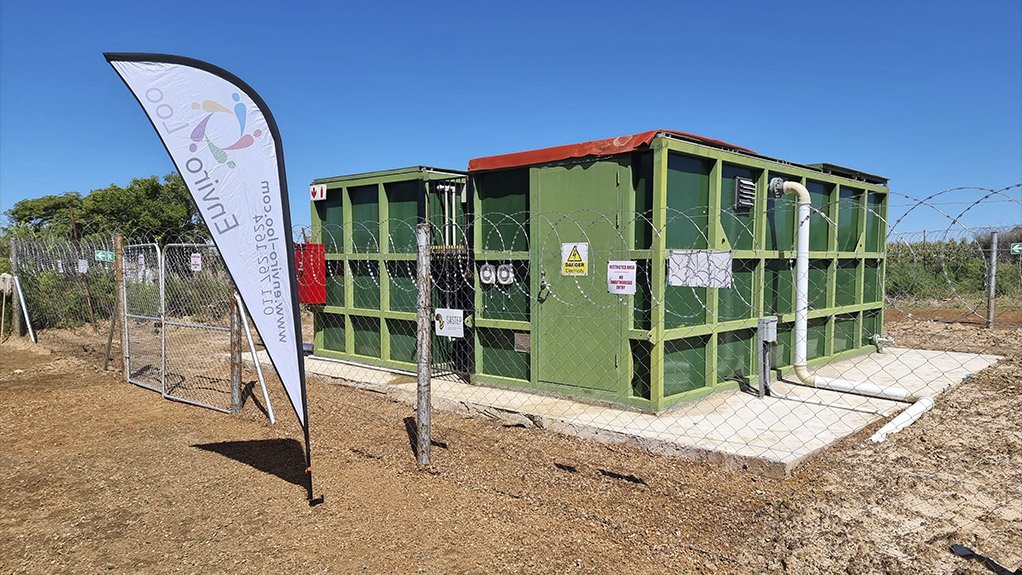/ MEDIA STATEMENT / The content on this page is not written by Polity.org.za, but is supplied by third parties. This content does not constitute news reporting by Polity.org.za.
Public schools in South Africa have been at the short end of inadequate infrastructure. Many schools are still heavily reliant on the chemical toilet or pit latrines. These sanitation methods are not safe and don’t offer the most hygienic solution. That is why the Water Research Commission (WRC) through the SASTEP (The South African Sanitation Technology Enterprise Programme) has heeded the call of President, Cyril Ramaphosa and the SAFE (Sanitation Appropriate for Education) initiative to eradicate unsafe toilets in our schools.
The WRC and SASTEP have launched an initiative with the Department of Basic Education (DBE) to demonstrate Next Generation Sanitation (NGS) technologies in schools. This partnership aims to provide adequate, affordable, sustainable, and safe solutions to the current sanitation crisis in South Africa. SASTEP is looking for innovations in non-conventional technologies with the potential to be adopted due to their affordability, durability, convenience, aesthetic design, and effectiveness. This has led to research into school sanitation and considerable resources have been expended on sensitizing the public and stakeholders in school sanitation on the benefits of improved school sanitation.
One of the outcomes of the research showed the lack of appropriate technologies in the sanitation technology toolbox available to schools. Through the WRC’s sanitation programme, SASTEP, next-generation sanitation technologies are being introduced into the pool of technologies available for deployment in schools and households in need of sanitation transformation.
School sanitation is a segment that needs urgent attention given pupil facilities in recent years from dilapidated toilet facilities. The UN’s 6th Sustainable Development Goal is clean water and sanitation for all. Considering the current progress, it is unlikely that the 2030 target will be met. This is unless there is a drastic change in approach to sanitation technologies. Therefore, SASTEP has partnered with various commercial partners who understand the needs of the people and the environment in which they are living. The partnership with the Department of Basic Education (DBE) to demonstrate Next Generation Sanitation (NGS) technologies in schools means that more schools across South Africa will have NGS technologies demonstrated in their school, which will provide schools with sanitation dignity that they deserve.
Climate change is causing water scarcity in many parts of South Africa. Therefore, full flush toilets cannot be considered the unilateral solution to the sanitation crisis that South Africa is experiencing. That is why Next Generation Sanitation (NGS) technologies pushes the boundaries and demonstrates solutions that minimize or eliminate water consumption in sanitation processes, recycle cleaned water for flushing and convert urine and faeces to fertiliser, biochar, animal feed and other valuable chemicals for sale or reuse.
The Clear water recirculation system was matched with Tirelo Farm School after the 2015 installation of a septic tank. Unfortunately, the septic tank failed and due to the prevailing soil conditions, this caused problems for both the school and the farm fields surrounding the school. Chemical mobile toilets were placed at the school as a temporary measure. After many subsequent and unsuccessful attempts to rectify the problem over the years, the Clear technology was chosen by The National Department of Basic Education after discussions with the WRC and the commercial partners.
The project to install the Clear water re-circulation toilet at Tirelo Farm School commenced in October 2021, and the commission only took place in February 2022 due to a few delays. The Clear water re-circulation system was handed over on Wednesday 6 April 2022. Mrs L.M Molete who is the principal of Tirelo Farm Schools said that it’s been a long 7-year journey to get the school fitted with the right facilities for the children, but she is very grateful to the DBE, Mark La Trobe and WRC for not giving up and working tirelessly to make sure that the 128 young children of Tirelo Farm school have safe, and hygienic toilets to use.
The Clear water recirculation toilet system was developed as part of the Reinvented toilet technologies suite. It was developed through a grant provided by the Bill and Melinda Gates Foundation and has been licensed to a SASTEP commercial partner, Enviro Options for local manufacturing and distribution. The system is a containerized and modular unit that is easy to transport, install and commission. It requires no connection to an existing sewer system and can be energy self-sufficient if connected to solar panels. It offers an off-grid solution and will work in areas with little water supply. Up to 40 toilet pedestals can be connected to the system.
The system collects waste stream (including excreta, urine, and flushing water) from a flushing toilet, treats the waste stream, recovers the water, disinfects the recovered water, stores it, and uses it for flushing. The Enviroloo team conducted user education in the school and is happy to confirm that students and educators have a clear understanding of the system and how it works. The unit at Tirelo Farm School is a robust system, which allows the user to conduct the full sanitary process in the cubicle. Mark La Trobe reassured the school that the Enviroloo team is a long-term partner with the WRC and Tirelo, to assist, train and maintain the upkeep of the toilets.
Next-generation sanitation leads to safer sanitation facilities that also protect children from unsafe facilities such as pit latrines and could decreases the child mortality rate in the country by reducing waterborne diseases. Through technologies such as the Clear water re-circulation, it highlights that safe access to sanitation is possible. It is through demonstrating these next generation sanitation technologies in various schools across the country that we are taking a step forward in the right direction to providing everyone with basic dignified sanitation services.
Issued by Water Research Commission
EMAIL THIS ARTICLE SAVE THIS ARTICLE ARTICLE ENQUIRY
To subscribe email subscriptions@creamermedia.co.za or click here
To advertise email advertising@creamermedia.co.za or click here











